10 books we loved
Here’s a selection of ten books we recommend to help you prepare for 2021. It promises to be a year not just of reconstruction and resilience, but also of frugality in the way we consume, produce, innovate, and organize our lives. Another theme may be loneliness, now that teleworking features so heavily in our way of life, together with an even more acute issue: agility amidst the chaos that seems to be taking over…
Here’s hoping you enjoy these good reads!
Grow the Pie: How Great Companies Deliver Both Purpose and Profit
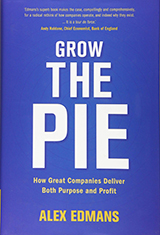
This is one of the ten best books of 2020 according to the Financial Times. Edmans’s thesis comes down to this: acting responsibly doesn’t mean sacrificing profit. Rather than pitting one against the other, the author combines these two ideas: prosperity doesn’t aim directly at profit, but is based on a goal—the desire to meet a societal need and contribute to the betterment of all. In short, this is a must-read!
Conscious Leadership: Elevating Humanity Through Business
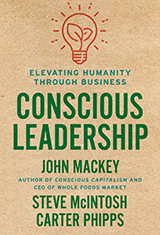
From Whole Foods CEO John Mackey and his co-authors, here is a follow-up to the ground-breaking bestseller Conscious Capitalism—revealing what it takes to lead a purpose-driven, sustainable business. It explores the vision, virtues, and mindset that have informed Mackey’s own leadership journey, providing a roadmap for innovative, value-based leadership—in business and in society.
Uncharted
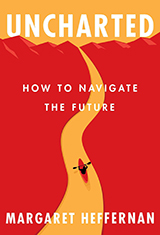
Another Financial Times Best Book of the Year! How should we be thinking about the future? What should we be doing—and who should we be? Hefferman, a serial entrepreneur and TED speaker, tells us about people and organizations that aren’t intimidated by uncertainty, describing how to forge ahead into uncharted territory with agility, despite our prediction addictions.
No Rules: Netflix and the Culture of Reinvention
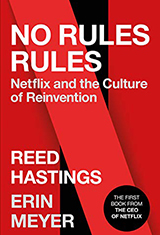
Netflix co-founder Reed Hastings tells the story of the unorthodox culture behind one of the world’s most innovative, imaginative, and successful companies. We learn that it’s a culture based on two things: a trailblazing flexibility that wouldn’t be possible without counter-intuitive management principles; and a rejection of conventions and traditions to build a culture geared towards freedom and responsibility. Another book not to be missed!
Too Much Information: Understanding What You Don’t Want to Know
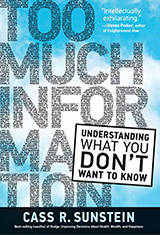
Do we need to know absolutely everything? Cram ourselves full of information all day long? Know whether we have a genetic predisposition to a particular disease? We talk about the right to know, but are we aware of the impact of too much information on the quality of our lives in the long term? How can we find a balance between the right to know and the need for clarity about the consequences of information overdose?
Do Good At Work: How Simple Acts of Social Purpose Drive Success and Wellbeing
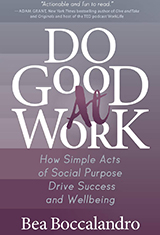
This is another one of our 2020 favorites. How does the meaning, desire, importance, indulgence and determination you put into small daily acts transform your job and the jobs of the people around you? And how can we stand up to those “bullshit jobs” that make people sluggish, disengaged, careless, disloyal, and unhappy?
The Practice: Shipping Creative Works
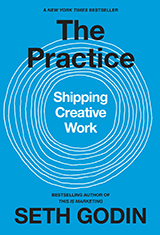
Writer’s block is a myth; consistency is more important than authenticity; and impostor syndrome is a sign that you’re human. Putting it plainly, Godin argues that what sets great innovators apart isn’t so much the creativity of their ideas as the consistency of their execution. So, how do you turn your passion (which is something personal) into a contribution to be shared?
The Innovation Delusion: How Our Obsession with the New Has Disrupted the Work That Matters Most
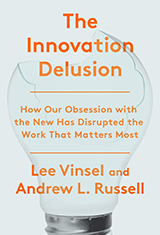
Innovation in all its forms is the hottest buzzword. But doesn’t chasing after innovation at any price mean we’ve forgotten something that creates as much — if not more — value? Upkeep, or maintenance and repair, simultaneously meets the aspirations of value creation, empowerment, highlighting professions that are anything but bullshit.
Out of My Skull: The Psychology of Boredom
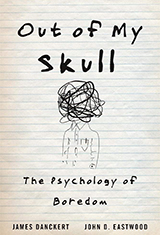
None of us enjoys being bored… which means we tend to get busy to avoid the fear of feeling nothing, in the process confusing nervousness, distraction and efficiency. We feel we must boredom at all costs; and yet, it has a role to play. Boredom grounds us, is a source of concentration, and gives us the energy to change. It is time to better understand how boredom emerges, and what it has to tell us.
To reread: Messy: The Power of Disorder to Transform Our Lives
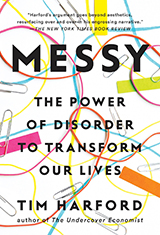
Being neat and tidy might feel good, but it’s likely undermining the creativity and agility of you and your teams. “Few people are willing to take the messy path if a tidier approach of organizing, preparing, and coordinating looks like it might deliver victory,” writes celebrated economist and author Tim Harford. And yet, he argues, creativity and resilience rely on “human messiness.”
© Copyright Business Digest - All rights reserved



